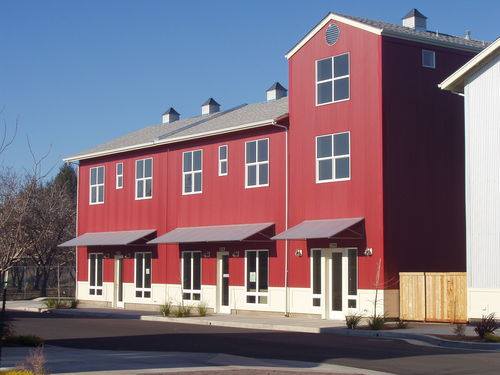 Over the last couple weeks I have been getting some feedback on the things people are worried about as they consider taking on their first development project. Worries about talking to bankers and asking investors for money are high on the list followed by concerns about how to find reliable trade contractors and property management firms.
Over the last couple weeks I have been getting some feedback on the things people are worried about as they consider taking on their first development project. Worries about talking to bankers and asking investors for money are high on the list followed by concerns about how to find reliable trade contractors and property management firms.
The key seems to be helping folks understand how the big hunks of the project fit together sorting out the connections between Likely Rent, Likely Project Costs, and Likely Operating Expenses. It is important to sort his stuff out on paper using the pro forma to see how much you can afford to spend building the project, given the likely rents. The short answer? If you can't get enough rent, you can't build the building. There are lots of details to keep track of, but understanding the fundamentals of how a project makes money will help you see where those details fit in the overall picture.
Once they understand the "back of the envelope" math, they can understand how the finer grain budgets for hard cost, soft costs, operating expenses, and trade offs typical to the various deal structures with investors.
Back to the investors and bankers thing. If you have sorted out how your project makes money for someone willing to invest in your enterprise, the conversation becomes much more comfortable. It is a business deal. You have to provide a fair return for the risk the investor is taking on. If you disagree on the particulars you can shake hands and move on. If you have sorted out how the bank's construction loan will be repaid, that conversation is straightforward as well. Banks have lots of rules they have to comply with and your loan application should make it easy for your banker to comply with the requirements on their side of the transaction. Those rules and conventions are all knowable, so we should assemble primers on how to be a good bank customer.
Many thanks to the folks who participated in the recent series of group video calls. Continued progress. Please post questions on stuff you are looking for help on. The Small Developer/Builder group is gathering some bright people that are offering to you sort through this stuff, notably bankers and appraisers.
So don't worry. Take things one step at a time. Figure out your deal on paper and talk with smart people about it while it is just a project on paper. Developers who have had a lot of practice may appear that they have some special gift of intuition. They don't. They just have put in lots of hours sorting through the basics and asking smart experienced people to look at their deals.
 Many thanks to Chuck Marohn, Jim Kumon and the good folks at StrongTowns.org for putting together the registration set up for the August Boot Camp.
Many thanks to Chuck Marohn, Jim Kumon and the good folks at StrongTowns.org for putting together the registration set up for the August Boot Camp.

